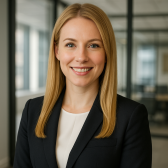The key to saving money effectively is to use simple, practical strategies that fit into everyday life. With the right approach, anyone can make progress toward financial goals without feeling overwhelmed.
1) Create a detailed monthly budget and track all expenses

Creating a detailed monthly budget helps people understand where their money goes each month. It includes listing all sources of income and every expense, no matter how small. Tracking these expenses regularly allows for better control over spending.
By writing down fixed costs like rent and utilities, along with variable expenses such as groceries and entertainment, it becomes easier to see which areas can be adjusted. Using a budgeting template or app can simplify this process. This method helps identify unnecessary spending and opportunities to save.
2) Automate savings by setting up recurring transfers to a savings account

They can make saving money easier by setting up automatic transfers from a checking account to a savings account. This process moves a set amount of money on a regular schedule without needing to think about it.
Automatic transfers help build savings steadily over time. Even small amounts saved regularly add up without causing a big impact on day-to-day spending.
Most banks and apps allow users to schedule these transfers. People can choose how much money to transfer and how often, such as weekly or monthly.
By automating savings, they reduce the risk of forgetting or skipping savings goals. It creates a consistent habit without extra effort.
This method works well for emergency funds, future purchases, or retirement savings. It keeps money growing safely in a separate account.
Automating transfers is free and simple to set up. It is a practical way to reach financial goals by making saving automatic and stress-free.
3) Switch to store-brand or generic products for groceries and household items
Switching to store-brand or generic products is a simple way to save money. Many store brands offer similar quality to name brands but cost much less. This can reduce grocery bills without sacrificing too much on taste or quality.
Household items like cleaning supplies or paper goods are often available in generic versions that work just as well. People can save around 40% by choosing these over expensive name brands. This is because store brands spend less on advertising.
Making this switch can add up to significant savings each month. It is especially useful for families or those on a tight budget. Shopping around and comparing the labels helps to find reliable store-brand options.
Store-brand products are found in most major grocery stores and discount retailers. Customers should check ingredients and reviews to be confident about their choices. Over time, many find they prefer the cost and quality balance of generic items.
4) Cancel unused subscriptions and memberships immediately
Many people pay for subscriptions or memberships they no longer use. These costs add up over time and can take a large part of a monthly budget.
Reviewing bank statements often helps spot these hidden expenses. By canceling services that are not needed, a person can save hundreds of dollars each year.
It is important to track all subscriptions regularly. Some free trials automatically renew, so forgetting to cancel can lead to unwanted charges.
Stopping unused payments frees up money for other priorities like savings or important purchases. Being aware and acting quickly prevents wasting cash on unused accounts.
5) Plan meals weekly to reduce food waste and avoid impulse buys
Planning meals ahead helps people buy only the ingredients they need. This reduces the chances of food spoiling before it gets used. When meals are mapped out for the week, shopping becomes more focused and efficient.
Having a weekly meal plan also prevents last-minute decisions to eat out or order takeout. It reduces impulse purchases that often add up and waste money. Sticking to a shopping list based on the plan keeps spending on track.
Using leftovers creatively is easier with a plan. People can use ingredients across multiple meals, cutting down on excess food. This simple habit helps save money and lowers food waste at the same time.
6) Use cashback apps and rewards programs for everyday purchases
Using cashback apps can help people save money on daily expenses like groceries, gas, and shopping. These apps give a small percentage of money back on purchases, which adds up over time.
To get the most from cashback programs, it is smart to use several apps at once. Combining apps, coupons, and store rewards programs can increase overall savings.
Popular cashback apps like Ibotta and Fetch Rewards work well for receipts and grocery rebates. Some apps don’t even require uploading receipts, making saving easier.
People should check these apps regularly and activate offers before shopping. Staying aware of app updates and new deals helps maximize money back.
For effective use, it is best to link credit or debit cards with cashback programs. This allows automatic tracking and earning without extra steps.
By focusing on everyday spending, cashback and rewards can add consistent value without changing shopping habits. This steady approach builds savings gradually and realistically.
7) Negotiate bills like cable, internet, and insurance for better rates
People can save money by negotiating their bills for services like cable, internet, phone, and insurance. Many providers prefer keeping customers rather than losing them, so they often offer discounts or better deals when asked.
Before calling, it helps to research competitors' prices and current promotions. Mentioning these can encourage the provider to match or beat those offers.
Negotiation works best when the customer is polite but firm. Explaining a willingness to switch providers can be effective. Some companies also have special promotions not advertised publicly, which they may offer during negotiation.
Insurance bills such as car or home insurance can also be lowered by comparing quotes and discussing better rates with current providers. Bundling different insurances may also reduce costs.
If negotiating directly feels difficult, some use bill negotiation services. These companies work on the customer’s behalf and only charge a fee if they save money.
Regularly reviewing bills and asking for discounts can prevent overpaying. Taking these steps each year helps maintain lower monthly expenses on these essential services.
8) Buy high-quality items that last longer instead of cheap replacements
Buying high-quality items can save money in the long run. These products last longer and often perform better than cheaper alternatives. This reduces the need to replace things frequently.
For example, well-made shoes with replaceable soles cost more initially but last for years. Similarly, strong tents or durable luggage provide more value because they endure extended use.
Choosing quality means fewer repairs and less waste. It may require a bigger upfront payment but avoids repeated expenses. This approach supports smarter spending and helps avoid regret.
9) Avoid eating out by prepping meals and snacks at home
They can save a lot of money by preparing meals and snacks at home instead of eating out. Cooking at home lets them control ingredients and portions while avoiding restaurant prices.
Planning meals ahead is key. They can spend a few hours once a week to cook and store meals in the fridge or freezer. This saves time and makes it easy to eat healthy food quickly.
Prepping snacks in advance also helps avoid impulse buys from stores or fast food. Simple options like cut veggies, nuts, or homemade granola bars are convenient and cheaper.
Using leftovers creatively reduces food waste and stretches their food budget further. They can turn extra cooked vegetables or proteins into soups, casseroles, or wraps for later meals.
When they plan based on what they have at home, they avoid buying duplicates. This practice lowers food costs and ensures better use of groceries already bought.
10) Use energy-efficient appliances and turn off unused electronics
Using energy-efficient appliances helps reduce electricity bills. These appliances use less power while working just as well as older models.
Turning off or unplugging electronics when they are not in use stops them from drawing standby power. Even when devices seem off, they can still use energy if plugged in.
Small appliances like coffee makers, chargers, and kitchen gadgets are easy to unplug. This habit can add up to noticeable savings over time.
People can also use smart plugs to control when devices get power. These plugs can be set to turn off electronics automatically, saving energy without extra effort.
Understanding Basic Money-Saving Principles
Saving money starts with grasping why people save and recognizing common habits that harm savings. Knowing these ideas helps create better plans and stick with them.
The Psychology of Saving
People save money for different reasons: emergencies, goals, or peace of mind. Understanding these reasons makes saving feel more meaningful.
Motivation affects how well someone saves. If the goal is clear and personal, saving becomes easier to prioritize. For example, saving for a new phone might feel more urgent than saving for a vague future need.
Impulse control plays a big role. Many struggle with spending on wants rather than needs. Learning to pause before purchases and asking, “Do I really need this?” helps improve saving habits.
Common Money Pitfalls to Avoid
Many people lose money by falling into predictable traps. One is overspending on unnecessary purchases, often influenced by sales or advertising.
Another pitfall is not tracking expenses. Without knowing where money goes, it’s easy to spend too much without noticing.
People sometimes keep using credit cards without a plan, leading to high interest charges. This reduces the money available to save.
Finally, ignoring a budget causes problems. A simple budget showing income versus costs makes it easier to control spending and increase savings.
| Pitfall | Effect on Savings |
|---|---|
| Overspending | Reduces available money |
| Not tracking expenses | Leads to unplanned spending |
| Misusing credit cards | Increases debt and interest costs |
| Ignoring budget | Lack of financial control |
Adopting Long-Term Savings Habits
Saving money consistently requires building habits that fit into daily routines and tracking progress to stay focused. Clear steps make it easier to stick with saving goals and see tangible results over time.
Integrating Saving Into Daily Life
He or she can start by setting up automatic transfers from checking to savings accounts. Automating savings removes the chance to spend extra money and creates a steady growth in funds without needing constant effort.
Cutting small daily expenses helps too. For example, skipping a daily coffee or preparing meals at home can free up cash to save instead. Treating saving like a regular bill ensures it gets paid each month.
Using separate accounts for different goals—like an emergency fund and a vacation fund—also helps keep money organized. This method prevents accidental spending of saved cash and clarifies saving priorities.
Tracking Progress and Staying Motivated
Tracking savings progress regularly encourages continued effort. This can be as simple as reviewing account balances monthly or using budgeting apps to visualize growth.
Setting specific targets and dates increases motivation. Milestones like saving $500 or reaching three months of emergency funds give clear wins to celebrate.
It also helps to adjust habits based on progress. If savings stall, reassessing budgets or finding new ways to save small amounts daily keeps momentum going.
Keeping motivation high reduces the risk of giving up before reaching bigger financial goals.
Frequently Asked Questions
Saving money requires clear strategies, consistent habits, and taking advantage of modern tools. Understanding practical steps and their benefits helps build better financial habits.
What are some practical strategies for saving money on a tight budget?
He or she can start by creating a detailed monthly budget to track income and expenses. Cutting costs by switching to store-brand products and cancelling unused subscriptions helps stretch limited funds.
How can I effectively save a portion of my monthly salary?
Automating savings is key. Setting up a recurring transfer from a paycheck to a savings account ensures money is saved before it can be spent.
What are innovative and modern methods for setting aside savings?
Using mobile apps that round up purchases and save the difference or that automatically transfer small amounts can make saving easier and less noticeable.
Can you list some benefits of maintaining a savings routine?
Consistent saving builds financial security and helps avoid debt. It also makes it easier to handle emergencies and plan for long-term goals.
What approaches can I take to save money quickly and efficiently?
Planning weekly meals reduces food waste and impulse buys, while the “30-Day Rule” helps avoid unnecessary purchases by waiting before buying.
Could you provide some low-effort money-saving tips for everyday finances?
He or she may save by cancelling unused memberships and subscriptions quickly. Also, buying generic brands and tracking expenses regularly requires little effort but adds up over time.

















